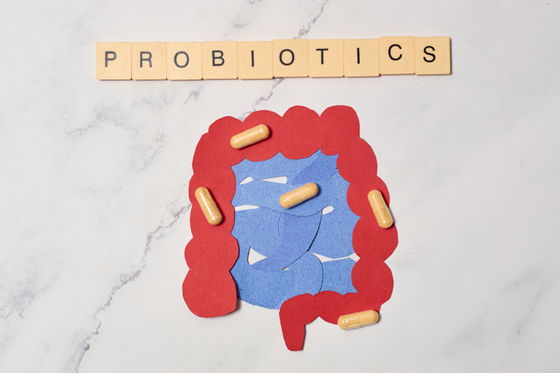Research results show that 'dietary fiber' may be more effective than probiotics for intestinal health

There are more gut bacteria in the human intestine than there are stars in the Milky Way Galaxy, and they play an important role in human health. Research results have been published showing that in order to maintain a healthy balance of gut bacteria,
Ecological dynamics of Enterobacteriaceae in the human gut microbiome across global populations | Nature Microbiology
https://www.nature.com/articles/s41564-024-01912-6
Fiber may help protect your gut from overgrowth of harmful bugs – new study
https://theconversation.com/fibre-may-help-protect-your-gut-from-overgrowth-of-harmful-bugs-new-study-246910
A research team led by Alexander Almeida, principal investigator at the University of Cambridge in the UK, published a paper in the peer-reviewed academic journal Nature Microbiology on January 10, 2025, in which they analyzed more than 12,238 stool samples taken from people in 45 countries around the world. Announced the results of their research.
Below is a map that colors regions by the number of samples collected, with yellow-green representing less than 100, green representing 100-1000, and blue representing more than 1000. Japan provided 592 samples.

The team used
The Enterobacteriaceae family is a group of gram-negative bacteria that includes Escherichia coli. Although small numbers of Enterobacteriaceae are harmless, if they proliferate in large numbers for some reason they can cause health problems such as infections.
Further research has revealed that there are two groups of gut bacteria: 'co-colonisers,' which are bacteria that grow together with the Enterobacteriaceae family, and 'co-excluders,' which are rarely found at the same time as the Enterobacteriaceae family. It has been found that the presence of one type of exclusive bacteria, the Faecalibacterium genus, in the gut is particularly important for health.
Bacteria of the genus Faecalibacterium break down various types of dietary fiber to produce short-chain fatty acids , thereby inhibiting the growth of harmful bacteria such as Enterobacteriaceae.

'The presence of short-chain fatty acids was a strong signal that the balance of symbiotic and antimicrobial bacteria was in place,' Almeida said. 'Several studies have shown that short-chain fatty acids are also associated with a wide range of health benefits, including reduced inflammation and improved gut function.'
Almeida believes that the results of this research could lead to new ways to prevent and treat infections without antibiotics. For example, while antibiotics are used to kill pathogens, they also affect good bacteria, but by introducing a diet that promotes the growth of harmful bacteria, it is possible to suppress the growth of harmful bacteria without the use of drugs.
A similar approach to improving the intestinal environment with good bacteria is the direct ingestion of beneficial intestinal bacteria known as 'probiotics.' However, previous research has shown that even if new bacteria are introduced into the intestines, they can only survive for a limited period of time.
Regarding increasing beneficial gut bacteria through diet, Almeida said, 'This strategy may be more effective than probiotics.'

The research team plans to use metabolomics , which examines chemicals produced by microorganisms, and transcriptomics, which examines how genes are activated, to better understand how the intestinal ecosystem helps human health. This could shed light on the relationship between specific nutrients, such as dietary fiber, and long-term health, and ultimately lead to the development of dietary treatments that protect against infections without antibiotics, Almeida said.
Related Posts:







